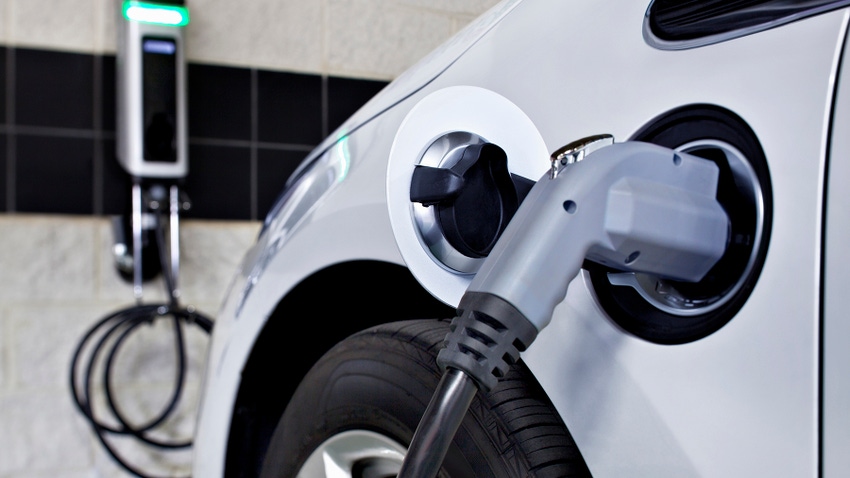
New standards announced by the EPA would require car and truck manufacturers to adhere to much more stringent emission standards starting in 2027. They include new guidelines for small and medium-duty vehicles as well as tougher regulations for heavy-duty vehicles like semi-trucks.
Ethanol advocates say the proposal unfairly incentivizes electric vehicle manufacturing at the expense of alternative fuels. They contend current biofuel technology is more advanced than electric car technology, and more cost-effective for consumers.
“While we certainly share the Biden administration’s goals of increasing vehicle efficiency and reducing carbon emissions from transportation, we strongly disagree with policy approaches that arbitrarily pick technology winners and losers with no clear scientific basis,” Renewable Fuels Association President and CEO Geoff Cooper says. “Today’s EPA proposal would effectively force automakers to produce more battery electric vehicles and strongly discourage them from pursuing other vehicle technologies that could achieve the same—or better—environmental performance at a lower cost to the U.S. economy and American families. We urge EPA to reconsider its proposal and instead adopt a technology-neutral approach that treats all low-carbon transportation options fairly and equally.”
Cooper notes that multiple studies have shown modern biofuels in fuel efficient cars offer significant reductions in carbon dioxide emissions. However, when car manufacturing and fuel production processes are factored in, the benefits become murkier.
To calculate the overall impact of various vehicles and fuels on the environment, the federal government uses a tool known as the GREET model. The name is an acronym for Greenhouse gases, Regulated Emissions, and Energy use in Technologies. It’s a tool that attempts to factor in the entire lifespan of vehicles and various fuels. Factors like the transportation and refining of corn are considered when evaluating the carbon footprint of alternative fuels. For electric vehicles, things like material extraction methods and battery charging station energy sources are also considered.
American Coalition for Ethanol CEO Brian Jennings says that effective federal policy would incentivize the market to encourage multiple technologies. He believes that low carbon biofuels can serve as a low-cost, technologically proven means to meet decarbonization goals while also creating economic opportunities in rural America.
“Unfortunately, today’s proposal isn’t that. Today’s proposal would stifle innovation and slow near-term climate reductions in exchange for a future of supply chain uncertainty and exacerbating environmental damage and human rights impacts from unsustainable mining of critical minerals across the globe,” Jennings says. “Rather than put all our eggs in the electric vehicle basket, a smarter and more achievable approach would be through a technology-neutral Clean Fuel Standard that ensures fair and accurate accounting and crediting of GHG (greenhouse gas) reductions from climate-smart agriculture practices and unleashes homegrown fuel sources.”
President Biden has made no secret of his desire to increase electric vehicle production in the United States. Since he took office, EPA data shows electric vehicle sales have tripled. The number of public charging stations has increased by 40% during his term. EPA officials estimate the new emission standards will incentivize manufacturers to make 67% percent of new light-duty vehicles and 46% of medium-duty vehicles electric by 2032.
“By proposing the most ambitious pollution standards ever for cars and trucks, we are delivering on the Biden-Harris Administration’s promise to protect people and the planet, securing critical reductions in dangerous air and climate pollution and ensuring significant economic benefits like lower fuel and maintenance costs for families,” EPA Administrator Michael S. Regan says. “These ambitious standards are readily achievable thanks to President Biden’s Investing in America agenda, which is already driving historic progress to build more American-made electric cars and secure America’s global competitiveness.”
According to statistics provided by the EPA, the proposed changes will reduce carbon dioxide emissions by 10 billion tons through the year 2055. That is more than double the United States’ total carbon dioxide emissions in 2022. EPA officials also estimate that the changes will save the average consumer around $12,0000 over the life of their car and reduce oil imports by 20 billion barrels.
Cost a major concern
House Energy Chair Cathy McMorris, R- Wash., says that the new fuel standards will make driving more expensive. While electric vehicle prices have been trending down, they are still higher than petroleum-powered vehicles. According to Kelly Blue Book, the average price of an electric vehicle at the end of 2022 was over $61,000 compared to just under $50,000 for traditional vehicles. McMorris adds that electric vehicle insurance also costs around 26% more.
“This will hurt low-income families the most, while also making us more reliant on China for critical materials necessary for electric vehicles,” McMorris says. “It’s a lose-lose for American families and for American security.”
American Trucking Associations President and CEP Chris Spear says that while his organization shares the goal of reducing greenhouse gas emissions and improving fuels efficient, he has major concerns over EPA proposed changes to what he considers already agreed upon regulations. According to him, the ATA will remain engaged in the regulatory process to ensure that EPA constructs technologically feasible regulations with realistic adoption timelines that will not lead to additional inflationary pressures.
“Our industry has always found ways to partner with EPA on regulations that are tough but achievable,” Spear says. “If EPA wants us to remain a willing participant, their going back and changing what was already agreed upon is not how to do it.”
About the Author(s)
You May Also Like






